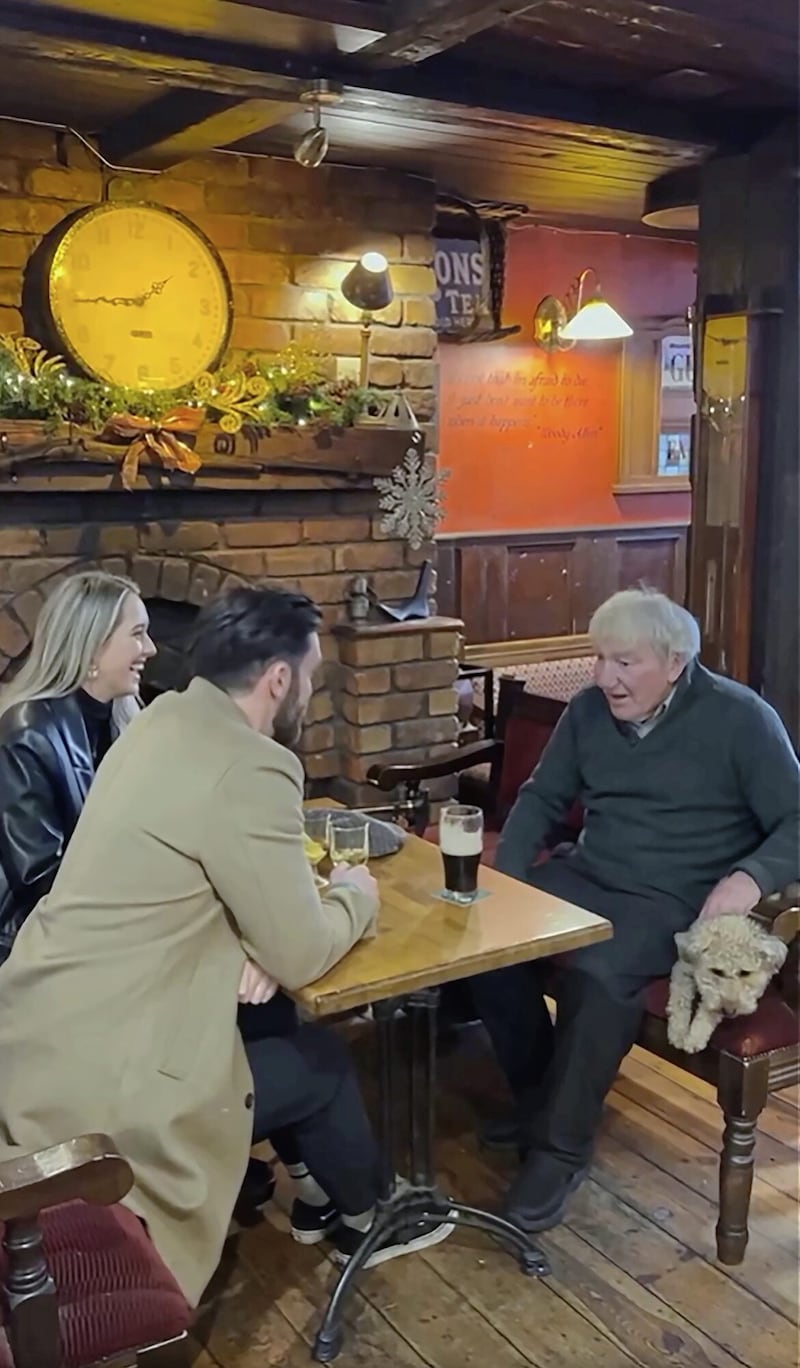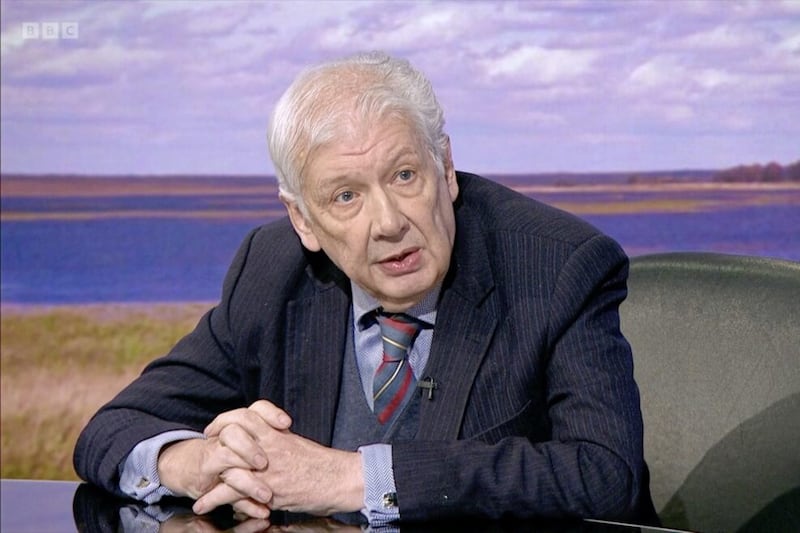The Christmas advertisement for Charlie’s Bar in Enniskillen, has become an internet sensation, touching the hearts of the thousands who have viewed it. Its poignant portrayal of an older man walking alone to his local bar, after laying flowers at a grave has brought the issue of loneliness to the fore.
Loneliness is poorly understood, stigmatised, and often dismissed as attention-seeking or trivial. We know how to react when we hear of a someone being diagnosed with an illness, but feeling lonely is rarely discussed.
Read more:
Deirdre Heenan: Free hospital parking will only make a bad situation worse
Co Fermanagh pub's Christmas advert goes viral
The unspoken assumption is that 'there must be something wrong with you', or maybe you are just not likeable. The fear of being judged or being considered odd encourages silence and stoicism. Who wants to be pitied or ridiculed? Probably best to just say nothing. No-one wants to make others feel awkward or guilty.
Consequently, rather than seeking help or support often people just try to deal with a sense of emptiness and 'put on a brave face'.
Loneliness is frequently confused or used interchangeably with social isolation, but it is not the same. It is perfectly possible for people to be isolated and not feel lonely. Conversely, individuals can be constantly surrounded by other people and feel alone.
It is not about how many friends or neighbours we have but the quality of our bonds with others. Contrary to popular belief older people in rural areas are not the loneliest, but young teenagers in full-time education.
Loneliness is not trivial. It is a serious public health issue. It can have devastating consequences for people of all ages, from all social backgrounds. It can ravage our body and our brain. It unleashes a slew of attacks on our bodies. Research suggests that it is as harmful as obesity or smoking 15 cigarettes a day.
Read more:Scientific proof that loneliness could shrink your brain
It is linked with depression, anxiety, poor sleep patterns, high blood pressure, dementia, Alzheimer's disease and premature death. According to the British Medical Journal, loneliness can increase the risk of having a heart attack or a stroke by up to 30%. It is considered a risk factor for type 2 diabetes and is associated with high levels of chronic pain. Cancer tumours metastasise faster in lonely people. Poor mental health can lead to loneliness and on the other hand loneliness negatively impacts on mental health.
Ironically, given that we live in a world where we are more connected than at any time in history, research suggest that loneliness is on the rise. Human beings are deeply social creatures, and we crave a sense of belonging, a sense of social connection. Our social interactions regulate how we think, feel and act.

Completely depriving someone of human company is a recognised form of torture. Feeling social isn't just about going out on a Saturday night or going for a drive at the weekend. It is a about a sense of connectedness, belonging.
We are naturally inclined to be drawn towards the company of others. Our wellbeing depends on our interpersonal relationships and social interactions
It is tempting to think that this increase in loneliness is due to the Covid-19 lockdowns and things just haven't returned to normal. People may still be cautious and withdrawn.
The evidence, however, shows that loneliness has been increasing over the past decade. More and more people report feeling a profound sense of detachment and dislocation from those around them.
Read more:The loneliness pandemic: the health of mind, body and soul is at stake
Historically, in this part of the world, society was based around tight knit communities; we lived together, we worked together. There was a pride is knowing everyone's "seed, breed and generation". Everybody knew everybody and there was always someone to call on when in need. We boasted that we didn't lock our back doors and were in and out of friends' houses constantly.
This world is disappearing fast. A mix of capitalism, neo-liberalism, economics, technology and globalism means staying in one community is no longer the norm.
Putting down roots and belonging is not straightforward in this fast-paced modern world. Of course, this is not necessarily a bad thing, and it would be silly to suggest that we should all stay where we were born.
While patterns of living and working have changed, the significance of having meaningful connections has not. Loneliness is devastating. While it may be increasingly common, it is not inevitable.
Christmas might just be the perfect time to reconnect, refresh and recommit to our meaningful relationships.








